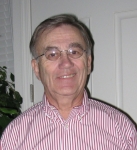I think the tradeoff of being able to process larger numbers of patients "efficiently" the way Kaiser does may also result in a larger numbers of patients who get lost in the system and quickly become 'noncompliant' due to lack of the help many need in the early phase of PAP therapy. So I'm not sure it ends up being "effective" in that sense. I'd be curious if the assembly line approach (whether Kaiser or elsewhere) results in lower percentages of successful users than centers where patients are seen individually and given more instruction and support.
At the Sacramento Kaiser you will not see a sleep medicine doctor through the entire diagnostic/titration process unless there's some unusual circumstance. You will not even spend one-on-one time with a respiratory therapist -- again, unless there's something unusual going on. At my appointment to pick up the APAP for the titration week, I was handed a nasal mask, no other option, and told "you'll get used to it." They gave me the blower only, no humidifier. No showing me the comfort features of the machine (ramp, EPR) that I could work with at home. When this is a new patient's introduction to PAP, it's almost an invitation to fail. I didn't fail, but only because of this forum.
I have never YET (more than 3 years into my therapy) seen a sleep medicine doctor. From what I read about other's here who have had to meet with the sleep doctor, it doesn't seem like any great loss. It's rare that a sleep medicine doctor is helpful at all with the nitty gritty of using a CPAP machine. Most people are told simply to "use the machine" regardless of any issues they may have with it.
Here in Santa Rosa, the sleep techs have been very good about fitting the mask to the person and not simply handing you one and telling you to get used to it. I've been able to call them (or email, which I love) if I'm having a problem and go in for a fitting. It's a poor fitting in that it's done sitting up, but at least they will try multiple masks and give you the samples to take home to see if it works for you in real life before changing your prescription (Kaiser requires that the specific mask be prescribed because they are also the DME--Crapria is merely the supplier).
They don't give you the humidifier during the week long titration (they claim they are too difficult to clean) and that is brutal for a lot of people. My sinuses really suffered until I read here some tips like using saline spray before bed. I was taught to use the ramp button during the titration if I woke in the middle of the night with a hurricane force blowing at my face, but told NOT to touch the other buttons because it was a titration, not treatment at that point. And the sleep lab techs pointed me to THIS forum for additional help, in addition to being ready and willing to answer my questions if I contacted them by email.
Personally I think that my local Kaiser, at least gives more support than most non-Kaiser people ever get between the hours of patient education and sleep tech support. I suspect Kaiser success rates with CPAP may be HIGHER than most.
Perhaps where your Kaiser failed was in instructing people to contact the sleep techs if more support was needed. But Kaisgram is also from Sacto, and had similar difficulties up there. So perhaps not. Keep in mind that if you are in the Northern California system, you can get your care from ANY Kaiser in the region, so it may be worth a trip to Santa Rosa.















